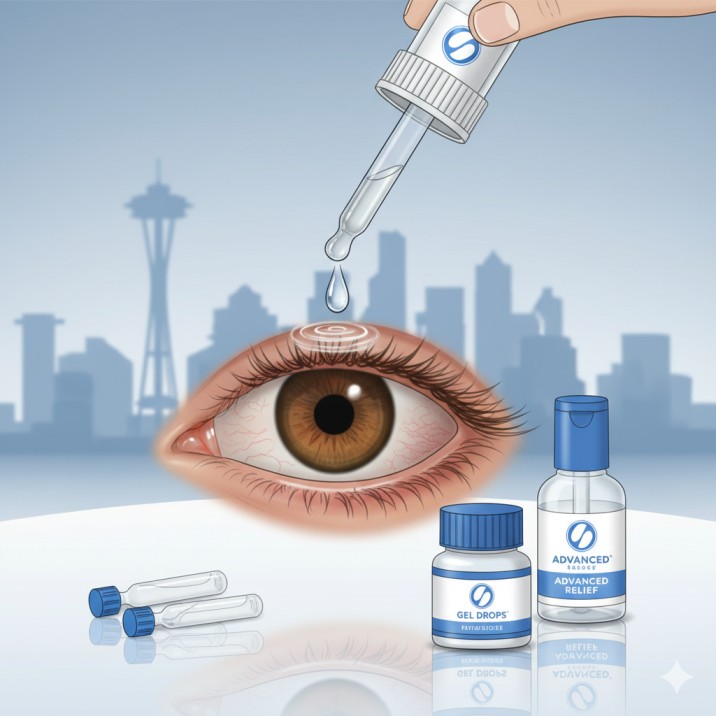Why Routine Eye Exams Matter – Seattle Eye Care
At Cannon EyeCare in NE University Village St, Seattle, WA, our optometrists hear this daily: ‘Why schedule routine eye exams if my vision seems fine?’ It’s a valid concern—especially for those who’ve never needed glasses or contacts. Some patients even question annual checkups when their current prescription still feels effective. But there’s far more to eye health than clear sight.
Key Takeaways: Protecting Your Vision Starts Before Symptoms Appear
-
Glaucoma is a silent threat—you can lose up to 50% of your optic nerve function before noticing symptoms. Annual exams are your only defense.
-
Insurance companies don’t gamble—they fully cover yearly eye exams because early detection saves lives and cuts costs by 90%.
-
Risk rises with age—if you’re over 40, your glaucoma risk increases every decade. Start annual exams early, especially with a family history.
-
Common health issues amplify danger—conditions like diabetes, high blood pressure, and heart disease double or triple your risk of glaucoma.
-
Previous eye injuries matter—even an old sports or accident-related eye injury can raise your glaucoma risk by 300%.
-
Cannon EyeCare offers proactive care—from OCT nerve scans to custom trauma-informed testing, early detection means preserving sight for life.
Why Insurance Companies Push Annual Exams
-
Insurers prioritize cost reduction, yet they fund yearly exams because prevention saves far more than treatment.
-
Undiagnosed eye diseases often lead to irreversible vision loss, requiring expensive, lifelong care.
-
Late-stage treatments yield poorer outcomes, causing preventable disability and life disruption.
Routine exams at Cannon EyeCare help Seattle residents avoid this trajectory.
The Silent Threat: Glaucoma
With over 200,000 new U.S. cases yearly, glaucoma often strikes without warning.
Key facts for Seattle patients:
-
Zero symptoms until irreversible nerve damage occurs.
-
Causes blindness if undetected—but preventable with early care.
-
Routine exams at Cannon EyeCare are your only defense against this ‘vision thief’.
Why Glaucoma Goes Unnoticed
Unlike eye strain or blurred vision, glaucoma never announces itself:
-
No pain, headaches, or obvious visual changes.
-
Damage is already severe (50% optic nerve loss) when symptoms surface.
-
One eye often compensates for the other, masking deterioration.
NE University Village patients: Don’t rely on ‘feeling fine’—your eyes hide risks only professionals spot.
Early Detection Saves Sight
During your Seattle eye exam, our optometrists screen for subtle red flags:
-
Elevated eye pressure
-
Suspicious optic nerve appearance
If you’re deemed a ‘glaucoma suspect’, we initiate proactive monitoring—no waiting for symptoms.
Why Seattle Insurers Cover Yearly Exams
Vision plans fully fund annual checkups because:
“$1 in prevention saves $27 in long-term blindness care”
-
Early glaucoma detection slashes treatment costs by 90%
-
Prevents disability claims and lost productivity
NE University Village insight: When profit-driven insurers invest in prevention, you know it’s vital
Your 3-Step Seattle Sight Protection Plan
-
Never trust “feeling fine”—glaucoma works invisibly
-
Detect early with annual exams at Cannon EyeCare
-
Preserve vision through proactive care
Effective Glaucoma Management in Seattle
Early intervention changes everything:
-
Blindness is rare with timely treatment.
-
Most patients control it with one daily eye drop and 2-4 yearly checkups.
At Cannon EyeCare, we use advanced diagnostics to personalize your care—protecting vision with minimal disruption.
Glaucoma Risk Factors: Are You a High-Risk Candidate in Seattle?
Age, Heritage & Health Conditions That Demand Proactive Eye Exams
Age: The Critical Multiplier
Seattle residents over 40: Your glaucoma risk doubles every decade after 60. Why?
-
80% of glaucoma cases occur in seniors
-
Age reduces optic nerve resilience
At Cannon EyeCare NE University Village, we recommend annual screenings starting at age 40—sooner for high-risk groups.
Family History: Your Genetic Blueprint
Glaucoma Runs in Families: Seattle Genetics Alert
Parents or siblings with glaucoma? Your risk jumps 400%.
At Cannon EyeCare University Village:
-
We map family history during new patient exams
-
Genetic risk = biannual specialized testing
-
Early intervention prevents generational vision loss
Don’t guess genetics—test them.
Medical Conditions: The Silent Accelerators
Seattle Patients: These Conditions Demand Extra Eye Vigilance
If you have:
-
Diabetes (2x glaucoma risk)
-
Hypertension (restricts optic nerve blood flow)
-
Heart disease (linked to vascular glaucoma)
Action Plan:
-
Manage conditions with your primary care doctor
-
Get comprehensive glaucoma scans at Cannon EyeCare every 6 months
-
Request OCT nerve fiber layer analysis
Eye Injuries: Past Trauma, Future Risk
Seattle Sports & Accident Survivors: Heed This Warning
Past eye trauma increases glaucoma risk by 300% through:
-
Scar tissue blocking drainage
-
Inflammation damaging optic nerves
-
Delayed pressure spikes
If you’ve had:
- Sports injuries
- Car accidents
- Workplace incidents
signal trouble—by then, it may be too late. Glaucoma and other sight-stealing conditions often develop silently, but routine eye exams can catch them early when treatment is most effective and your vision is still intact. Whether you’re over 40, have a family history, or just want peace of mind, proactive care is your best defense
FAQs
-
Why should I get my eyes checked if I see well?
-
Glaucoma causes no early symptoms but damages your optic nerve silently. Regular eye exams catch it early before vision loss occurs, protecting your sight long-term.
-
-
How often should I have an eye exam to check for glaucoma?
-
Can glaucoma cause vision loss if I don’t feel any symptoms?
-
Who is most at risk for developing glaucoma?
-
What happens during a glaucoma eye exam?
-
Can glaucoma be cured if caught early?
-
What should I do if I forget to use my glaucoma eye drops?
-
What is glaucoma and why is it dangerous?
-
How does glaucoma affect vision if I don’t notice symptoms?
-
When should I start getting glaucoma screenings?
-
Can lifestyle changes help prevent glaucoma?
-
What are the main tests used to detect glaucoma?




